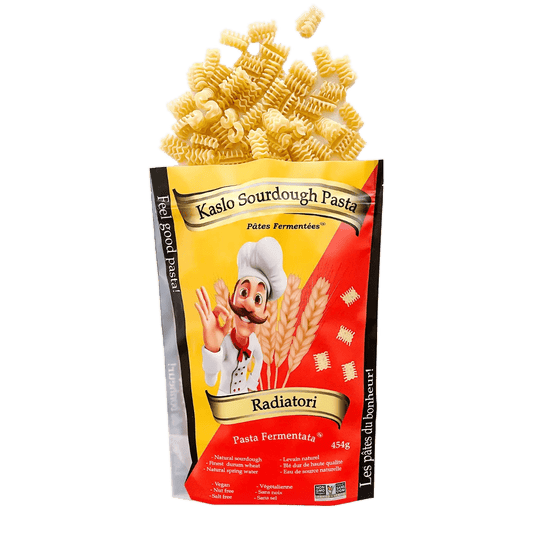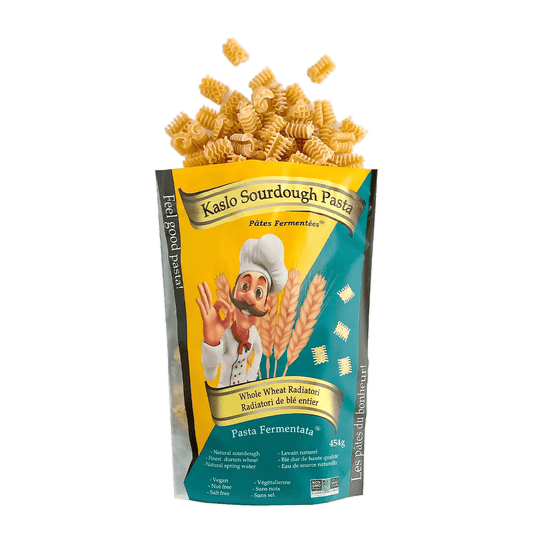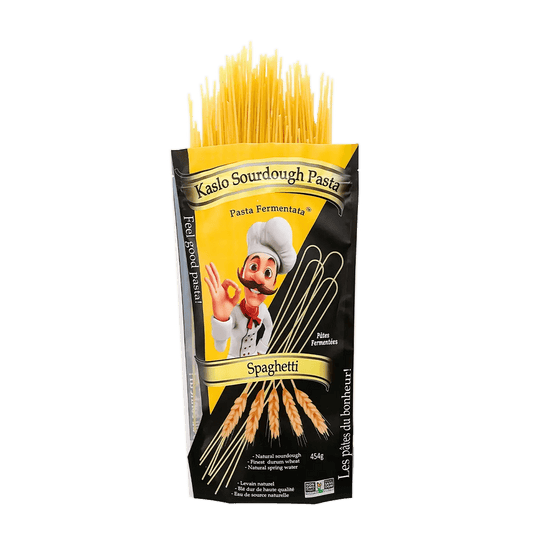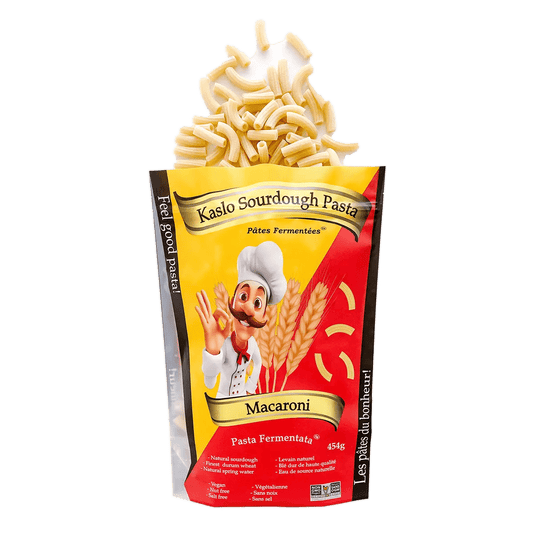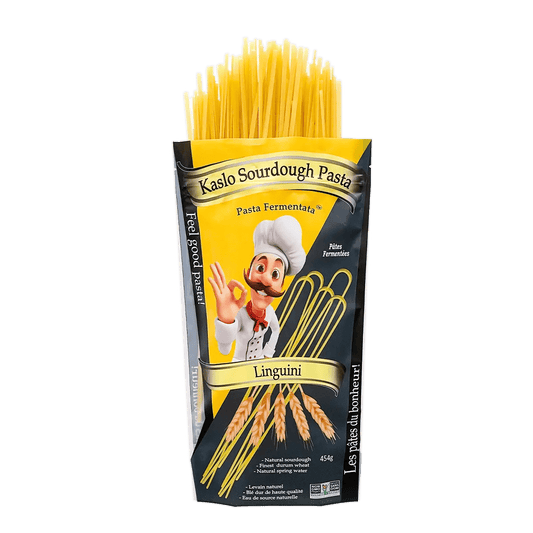Author: Chris Wormald
If you eat as much sourdough products as me, you’ve probably come across something called Sourdough that really isn’t. The problem, as with most foods is that there’s no consequences other than public shaming to call something “Sourdough” even if there isn’t. Here’s a tip – if it’s bread, put it in the toaster and note how long it takes to burn. Regular bread will burn twice as quickly as sourdough bread. I’m not sure why but it works. Many commercial bread products labeled as sourdough might not actually be made through the traditional sourdough fermentation process. Instead, they may use additives or flavorings to mimic the tangy taste associated with sourdough.
We looked around for some other ways to tell if the sourdough you’re buying is genuine. Of course the best way is to make it yourself. And for pasta – there’s only one company who makes sourdough pasta and we absolutely certify that it’s the real deal!
To determine if bread is genuine sourdough, here are a few indicators:
- Ingredients List: Check the ingredients list. Authentic sourdough typically consists of flour, water, salt, and naturally occurring yeast cultures. If you see any additives or preservatives listed, it may not be true sourdough
- Fermentation Time: Traditional sourdough requires a long fermentation process, usually several hours to several days. Mass-produced bread often skips or shortens this fermentation process to save time and cut costs. True sourdough is often made by artisanal bakeries that take the time to ferment the dough properly
- Taste and Texture: Genuine sourdough has a distinctive tangy flavor and a chewy texture due to the fermentation process. It should have a complex flavor profile that develops over time. If the bread lacks these characteristics, it might not be authentic sourdough.
- Sourdough Starter: True sourdough bread is made using a sourdough starter, a fermented mixture of flour and water containing wild yeast and lactobacilli bacteria. Some bakeries proudly advertise their use of specific sourdough starters, indicating a commitment to traditional methods.
- Artisan Bakeries: Artisan bakeries that specialize in sourdough bread are more likely to produce authentic sourdough loaves. These bakeries often have a deeper understanding of the fermentation process and are more dedicated to traditional breadmaking techniques.
- Research and Reviews: Do some research on the bakery or brand selling the sourdough bread. Check reviews or ask locals for recommendations. Reputable establishments with a focus on quality ingredients and traditional methods are more likely to offer genuine sourdough.
By considering these factors, you can better determine whether the sourdough bread you're purchasing is authentic or not. Remember that genuine sourdough might be pricier than mass-produced alternatives due to the time and effort required for its production. If it's really cheap and not on next day clearance I'd be suspicious!
For Further Reading
Stephanie Kay Nutrition - How to Spot a Fake Sourdough
Healthy Home Economist - How to Spot Fake Sourdough at the Store (Panera too!)
The Ultimate Guide to Sourdough - All things Sourdough

